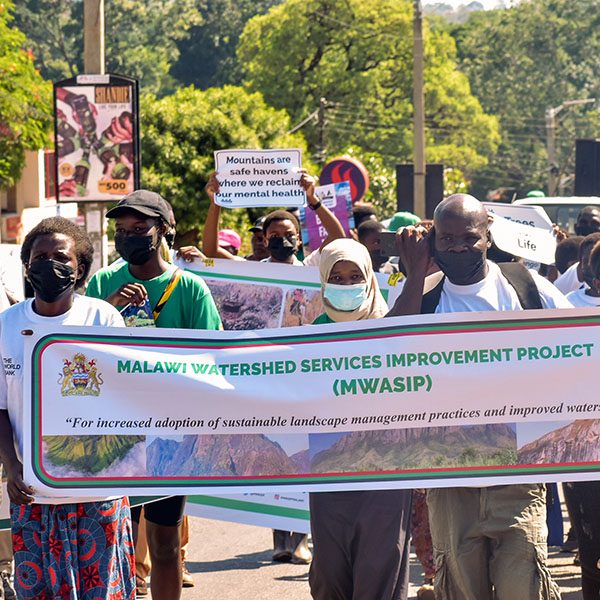MALAWI WATERSHED SERVICES IMPROVEMENT PROJECT(MWASIP)
Malawi as a country is endowed with many natural resources that support the majority of the productive sectors and are the primary source of livelihood for over 80 percent of the population. However, degradation in most critical watersheds has reached alarming levels, with significant impacts on water security, agricultural productivity, and hydropower generation.
Degradation of these renewable natural resources base (land, water, forests) has greatly affected the country and high exposure and vulnerability to climate change have adversely affected water and energy security, agricultural productivity and livelihoods.
The MWASIP is the first in a ‘Series of Projects’ (SoP) aimed at supporting the implementation of the National Forest Landscape Restoration Strategy (NFLRS). The NFLRS estimates that nearly 7.7 million ha of degraded land requires restoration intervention. The NFLRS target is to restore 4.5 million ha of the degraded landscape by 2030.
The MWASIP is the first in a ‘Series of Projects’ (SoP) aimed at supporting the implementation of the National Forest Landscape Restoration Strategy (NFLRS). The NFLRS estimates that nearly 7.7 million ha of degraded land requires restoration intervention. The NFLRS target is to restore 4.5 million ha of the degraded landscape by 2030.
The overarching Program Development Objective (PDO) is to restore degraded landscapes in priority river basins and improve water security, agricultural productivity and livelihoods.The program consists of three Investments Project Financing (IPF) operations targeting different priority river-basins with a duration of six years each and a three to four year overlap between each project.







